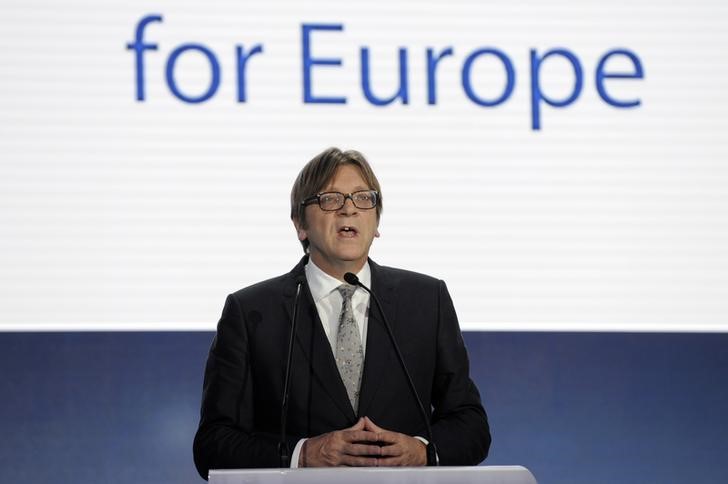STRASBOURG (Reuters) - EU chief executive Jean-Claude Juncker warned London again on Wednesday that it could not have access to Europe's single market if it bars some EU citizens from working in Britain after Brexit.
"There can be no a la carte access to the single market," the European Commission president told the European Parliament in his annual State of the Union address. "Only those can have unlimited access to the internal market who accept that there will be free access for persons and goods."
The point has been made repeatedly by Brussels as it waits for British Prime Minister Theresa May to launch the formal process of negotiation. The British government wants to retain trade access on the best terms with the EU but, following the June referendum, says free immigration from the EU must end.
On Tuesday, the same point was made by Guy Verhofstadt, the parliament's negotiator on Brexit. He said the four European freedoms -- of goods, services, capital and labour -- were indivisible and Britain could not have one without all of them.
During Wednesday's debate, Verhofstadt said the European Union should treat the negotiations with Britain as an occasion to make progress rather than take revenge.
"Brexit is not a liability. I see it more as an opportunity," he said. "Our duty, our responsibility is to make Brexit a success for Europe, for all citizens of Europe.
"Brexit is not a matter of punishment, it's not a matter of revenge," he said, addressing British eurosceptic members who described him as anti-British "fanatic" in his pursuit of a more closely integrated EU.
Nigel Farage, of the UK Independence Party, said Verhofstadt's insistence this week that Britain could not retain access to the EU single market if it did not accept fully free immigration from the EU meant a agreed deal would be unlikely.
Verhofstadt, a former Belgian prime minister, said: "Let's stop on both sides of the Channel our collective depression and let's stop the politics of division and cite this opportunity not to kill Europe as some of you want but to reinvent Europe."
Verhofstadt will represent the parliament in negotiations once the British government launches the Brexit process.
Farage called his appointment "pretty much an act of war on any sensible negotiating process".

Failure to agree a free-trade deal between Britain and the European Union, Farage said, would not damage the British economy as much as those of Germany and other manufacturing countries which export substantial amounts to Britain.